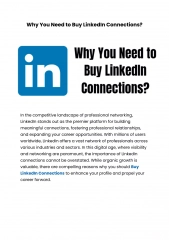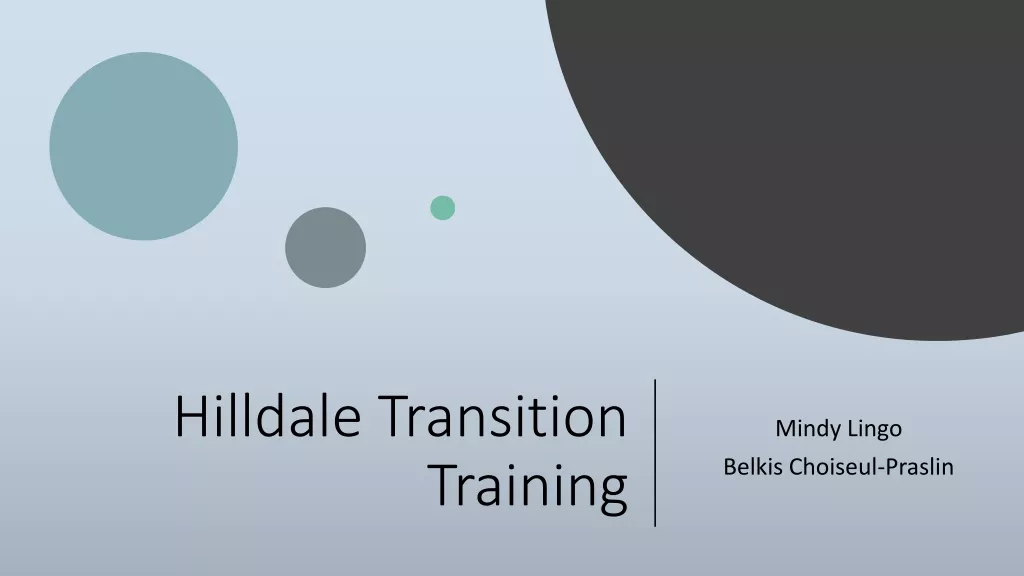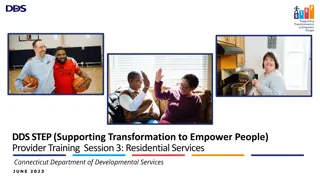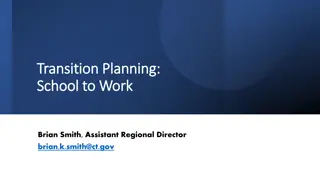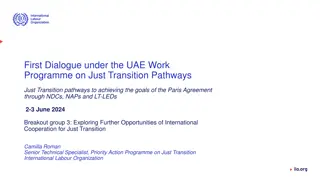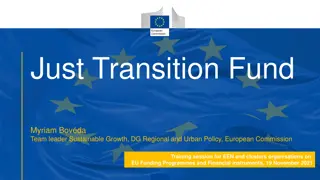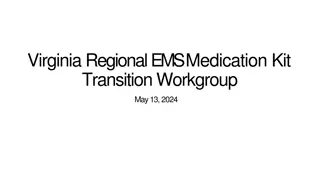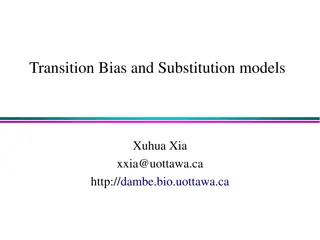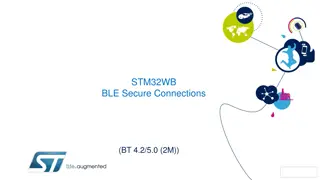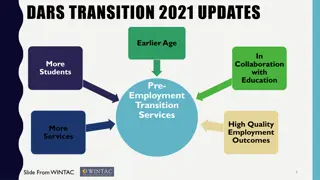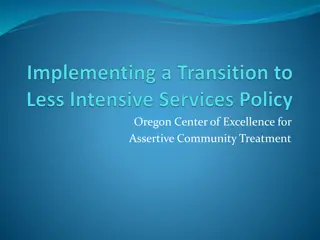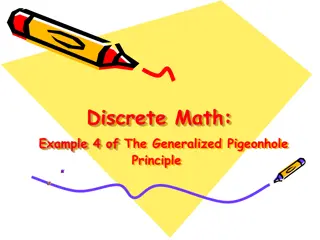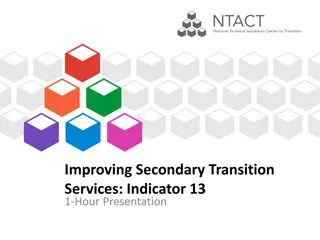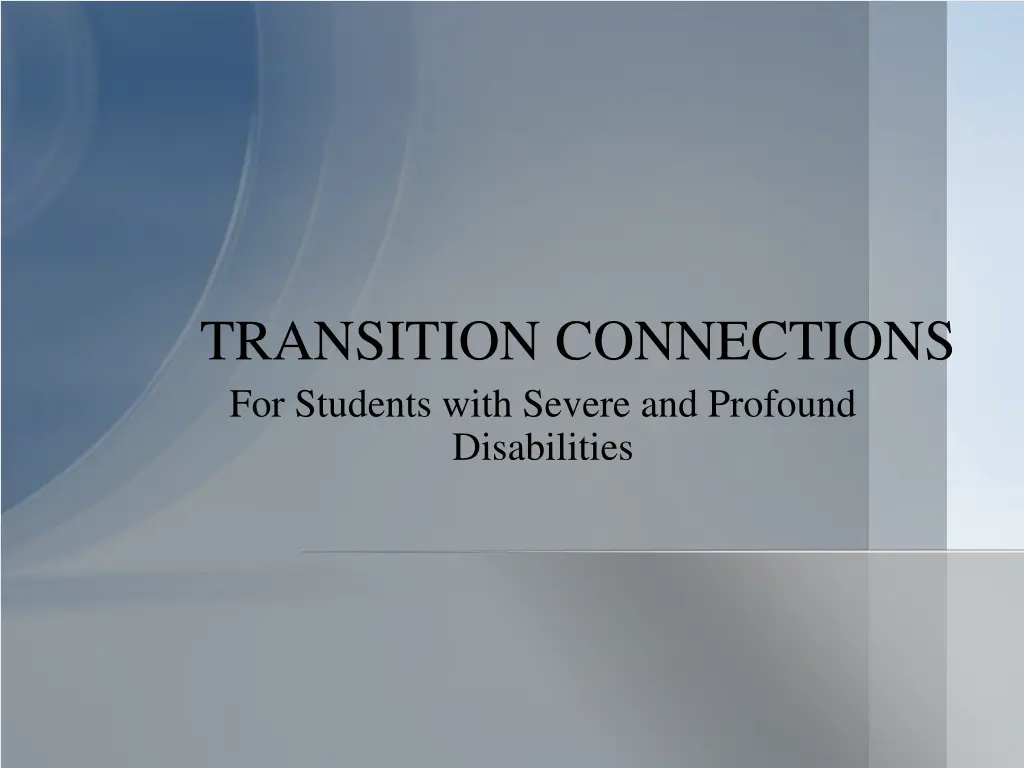
Transition Connections for Students with Severe & Profound Disabilities
Explore the essential aspects of transition services for students with severe and profound disabilities, including multiple disabilities and intellectual disabilities. Discover the definition of transition under IDEA 2004 and key areas of focus such as education/training, employment, independent living, and self-advocacy. Gain valuable insights from specialists in the field.
Download Presentation

Please find below an Image/Link to download the presentation.
The content on the website is provided AS IS for your information and personal use only. It may not be sold, licensed, or shared on other websites without obtaining consent from the author. If you encounter any issues during the download, it is possible that the publisher has removed the file from their server.
You are allowed to download the files provided on this website for personal or commercial use, subject to the condition that they are used lawfully. All files are the property of their respective owners.
The content on the website is provided AS IS for your information and personal use only. It may not be sold, licensed, or shared on other websites without obtaining consent from the author.
E N D
Presentation Transcript
TRANSITION CONNECTIONS For Students with Severe and Profound Disabilities
Denise Griffin Special Educator Transition Specialist Moore Public Schools
OSDE-SES August 2017 Multiple Disabilities (MD). An IDEA disability category in which two or more impairments co-exist (excluding deaf-blindness), whose combination causes such severe educational problems that the student cannot be accommodated in special education services designed solely for one of the impairments. Multiple disabilities are generally lifelong, significantly interfere with independent functioning, and may necessitate environmental accommodations and adaptations to enable the student to participate in school and society. Intellectual Disabilities (ID). An IDEA disability category in which subaverage intellectual functioning exists concurrently with deficits in adaptive behavior. These deficits are manifested during the student s developmental period and adversely affect the student s educational performance. https://sde.ok.gov/documents-forms
DEFINITION OF TRANSITION IDEA 2004 The term transition services means a coordinated set of activities for a child with a disability that: Is designed to be within a results-oriented process, that is focused on improving the academic and functional achievement of the child with a disability to facilitate the child s movement from school to post-school activities, including postsecondary education, vocational education, integrated employment (including supported employment); continuing and adult education, adult services, independent living, or community participation; Is based on the individual child s needs, taking into account the child s strengths, preferences, and interests; and Includes instruction, related services, community experiences, the development of employment and other post-school adult living objectives, and, if appropriate, acquisition of daily living skills and functional vocational evaluation. [34 CFR 300.43 (a)] [20 U.S.C. 1401(34)]
AREAS OF TRANSITION Education/Training (formal/informal connections) Electives/vocational rehabilitation/technology centers/colleges/social services/health services Employment community based work experience/paid employment/internships/job exploration Independent Living activities of daily living/housing/finances Community transportation/leisure & recreation/appointments **Self-advocacy/self-determination/organizational skills
ASSESSMENTS http://www.ou.edu/education/centers-and- partnerships/zarrow FREE Resources: preference indicators list of resources Teacher made inventories picture or photo choices/yes-no questions checklists Enderle-Severson Transition Rating Scale Form S Brigance Assessments (Developmental cognitive transition) DASH-III (Developmental Assessment of Students w/ Severe Disabilities)
QUESTIONS Education Where do you want to learn? What are your interests? What supports do you need? Employment What do you want to do? Where do you want to work? What type of environment? What supports?
QUESTIONS Independent Living (self-care, daily living, finance) Where do you want to live? Who do you want to live with? What skills do you have? What assistance do you need? Community What transportation do you need? What services do you need? How will you meet people? What are your hobbies/interests?
EDUCATION Annual Goal The student will identify 3 strengths and 3 weaknesses related to disability and educational needs by the end of the school year. Objective The student will complete transition assessments four times during the school year to determine strengths, preferences, interests, and needs. Activity transition assessments
EMPLOYMENT Goal The student will develop skills related to post- secondary employment or volunteer opportunities by completing weekly class job assignment. Objective The student will complete assigned class job 3 out of 5 times. Activity calendar, flag, errand, setting up class activity
Independent Living Goal The student will participate in daily living skills 3 out of 4 times as provided in daily class routine to be as independent as possible in post-secondary living environment. Objective The student will identify 4 grooming objects needed for specific tasks (toothbrush to brush teeth). Activity grooming objects/tasks
Community Goal The student will demonstrate social interaction skills 4 out of 5 times during a variety of weekly activities to be as independent as possible in post-secondary community. Objective The student will demonstrate appropriate interactions skills 4 out of 5 times. (eye contact, waiting turn, etc.) Activity group activities: library, assemblies, etc. community-based instruction trips leisure/recreational activities
IDEAS/ACTIVITIES Coffee cart Soup Day Snacks/drinks SOS Save our Staff: deliver water and small candy Plant garden and maintain Volunteer at local food bank School News Bulletin Board Service Learning Projects/Project Based Learning Work boxes supplemental activity Recycling/Shredding
BRAINSTORM Discuss ideas ask questions etc.


